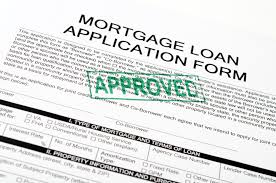Assumable Mortgage Guide: What It Is And How It Works
Go Back To Previous PageGiven the numerous mortgage options, financing a new house can be challenging for many home buyers. Each comes with its benefits. However, one type of loan worth considering is an assumable mortgage. The buyer takes over the seller’s existing mortgage in this borrowing option. This can have certain advantages based on your needs as a borrower and purchase price. This article will explore assumable mortgages among other types of mortgages.
This article will explore assumable mortgages among other types of mortgages.
How they work, and help you decide whether they suit you.
What Is An Assumable Mortgage?
An assumable mortgage is a loan program that allows the buyer to take over the seller’s mortgage loan and purchase the home. Buyers prefer assumable mortgages because they can take advantage of lower interest rates than current market rates.
This is especially true if the seller purchased the home with lower interest rates.
This can be an excellent opportunity for buyers as they can save a considerable amount of money on interest payments over the life of the loan.
Which Mortgages Are Assumable?
It’s important to note that not all home loans are assumable.
Most conventional mortgages cannot be considered. However, there are a few exceptions. For example, if someone inherits the property during someone’s lifetime or after their passing, they may be able to assume the mortgage.
Additionally, it’s possible to take an adjustable-rate mortgage after its initial fixed period ended.
Loans backed by the FHA, VA, or USDA are assumable with specific requirements. The seller must obtain lender approval for an assumable mortgage for FHA and VA loans.
FHA Loans
If you’re considering taking over an FHA loan, knowing the specific criteria the buyer and seller must meet for an assumable mortgage is essential. For newer FHA loans, the seller must have lived in the home purchased as their primary residence for a specific period. The buyer must also go through the standard application process for an FHA loan.
FHA mortgages are more accessible to buyers with credit scores above 580, making them ideal for those with less-than-perfect credit histories. Before applying for a mortgage, enhance your credit score to boost your application.
VA Loans
Eligible military members, service members, and their spouses can apply for a VA loan, which is backed by the Department of Veterans Affairs.
A non-qualified current or former military service member who wants to buy a property with a VA loan can apply for a VA loan assumption. However, if the loan is assumed by someone who doesn’t ordinarily qualify for a VA loan, the seller will lose their VA entitlement.
Depending on the loan setup, the lender may also need approval from the Regional VA Loan Center, which can cause additional paperwork processing time.
It is rare for a buyer to encounter a freely assumable loan that applies to any VA loan closed on or before March 1, 1988. If a seller has this type of loan, they do not need lender approval. However, they may still be responsible for making payments if the buyer fails to pay their mortgage on time.
approval. However, they may still be responsible for making payments if the buyer fails to pay their mortgage on time.
We recommend the seller obtain a liability release from the VA to avoid potential issues.
Buyers should think twice before taking over mortgages, which originated in the late 1980s. They tend to have higher interest rates.
USDA Loans
It is worth noting that another party can assume USDA loans. However, in most cases, both the lender and the USDA must approve the transfer of liability.
The only instances where approval is unnecessary are those mentioned earlier with conventional loans, where the new borrower is a successor. The seller is responsible for maintaining the mortgage until the buyer accepts the liability.
How Does An Assumable Mortgage Work?
Assumable mortgages function like conventional home loans, with a few limitations. The purchaser can only secure financing through the seller’s lender, and the lender’s approval is usually mandatory.
If the mortgage is taken over without the lender’s permission, the seller may have to pay off the remaining sum immediately. Furthermore, the seller risks the buyer defaulting on payments, which can negatively impact their credit rating.
In these instances, the buyer can save hundreds of dollars if an appraisal is not required. However, buyers should still consider ordering a home inspection to identify any repair issues with the property. After the buyer closes on the home, the seller will no longer be liable for the mortgage payments.
Pros And Cons Of Assumable Mortgages
When considering taking over a mortgage, weighing the advantages and disadvantages, including any extra expenses, paperwork, and timeframes required to process the loan, is crucial.
While avoiding higher interest rates with the seller’s lender may seem like a good idea, it’s better to shop around and explore other options before committing to anything. To make an informed decision, here’s what you need to know about taking on an assumable loan.
Pros Of Assumable Mortgages
- May make homes more accessible to sell:
Homes for sale with assumable mortgages offer a marketing advantage. Potential buyers seeking a simplified home buying process may find these mortgages attractive due to the possibility of a lower interest rate.
- It may save buyers money.
Lowering interest rates can save homebuyers thousands, and appraisals can save hundreds.
Cons Of Assumable Mortgages
- Increases financial risk
It’s not always beneficial to switch to a new situation. When sellers allow buyers to assume VA home loans, they may face additional risks, especially with assumable mortgages. If a buyer assumes a freely assumable mortgage and then transfers ownership to an undisclosed person, sellers may still be held responsible for covering any mortgage payments the new owner misses.
Sellers unaware of the transaction may be at an increased risk of default payments. However, they can mitigate this risk by requesting a release from the VA.
- Potential for lost entitlement
It’s important to note that if a seller has an assumed VA loan, they may lose their entitlement if the new owner defaults on payments. This can negatively impact their eligibility for future VA home loans. To avoid this, sellers should obtain a release of liability after closing and provide proof of it to the Department of Veterans Affairs. This step is necessary to reinstate their entitlement.
- No opportunity to shop around
Buyers must follow the original terms of the seller’s lender, which limits their ability to search for better rates or terms.
- It may not be approved.
To obtain approval, it is necessary to meet the lender’s credit qualification requirements.
How To Qualify For An Assumable Mortgage Loan
To be eligible for an assumable mortgage, the lender will review the buyer’s credit score and debt-to-income ratio to ensure they meet the minimum requirements. To process the loan, the lender may require additional details such as employment history, income explanations for each applicant, and asset verification for a down payment.
If you are interested in qualifying for an assumable loan, speaking with a qualified mortgage expert is essential to know the necessary documents. The approval of this type of loan is up to the seller’s lender or agency. However, finding the right lender to help you buy a home can give you peace of mind.
How Much It Costs To Assume A Mortgage
When you take over a mortgage loan amount from someone else, your fees can vary depending on the lender’s policy. In general, costs are associated with the assumption that they are either a percentage of the unpaid principal balance or a flat amount. It’s essential to remember that assumption fees may be subject to state laws, so it’s worth checking the regulations in your area.
In most cases, borrowers who assume VA loans must pay the VA funding fee of 0.5% of the remaining mortgage balance. However, exemptions apply to those who meet specific criteria.
- You currently receive VA disability payments.
- You’re a surviving spouse who receives Dependency and Indemnity Compensation (DIC) benefits.
- You’re an active duty service member who returned to duty after receiving a Purple Heart.
Assuming A Mortgage After Divorce Or Death
There are instances when acquiring a mortgage is necessary due to unfortunate circumstances such as the passing of a family member or a divorce. In these cases, the lender needs to confirm that the individual who is now responsible for the loan still meets their minimum requirements. This ensures that the new borrower can afford to pay off the mortgage.
When a person takes over a loan, the lender must verify additional information similar to what they would do for a regular home loan application. The lender will review income statements, asset lists, and the borrower’s creditworthiness to ensure they can still make the minimum monthly payments on the loan.
It is highly recommended to seek the advice of a Home Loan Expert and your real estate agent before committing to a loan.


